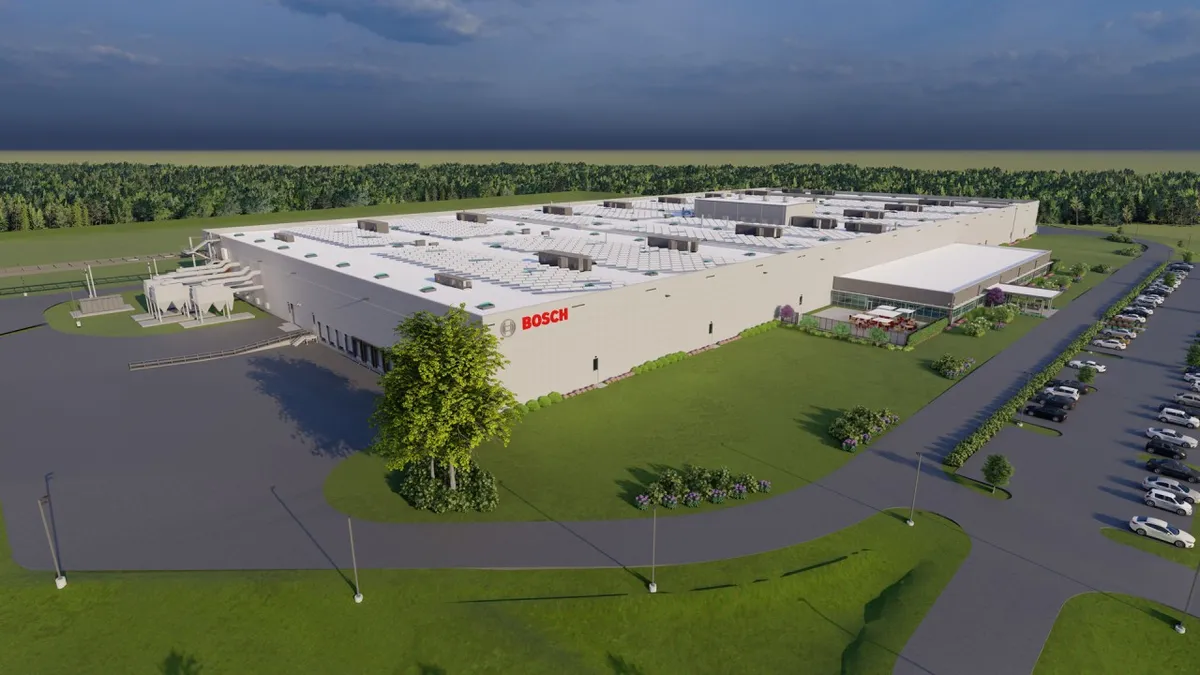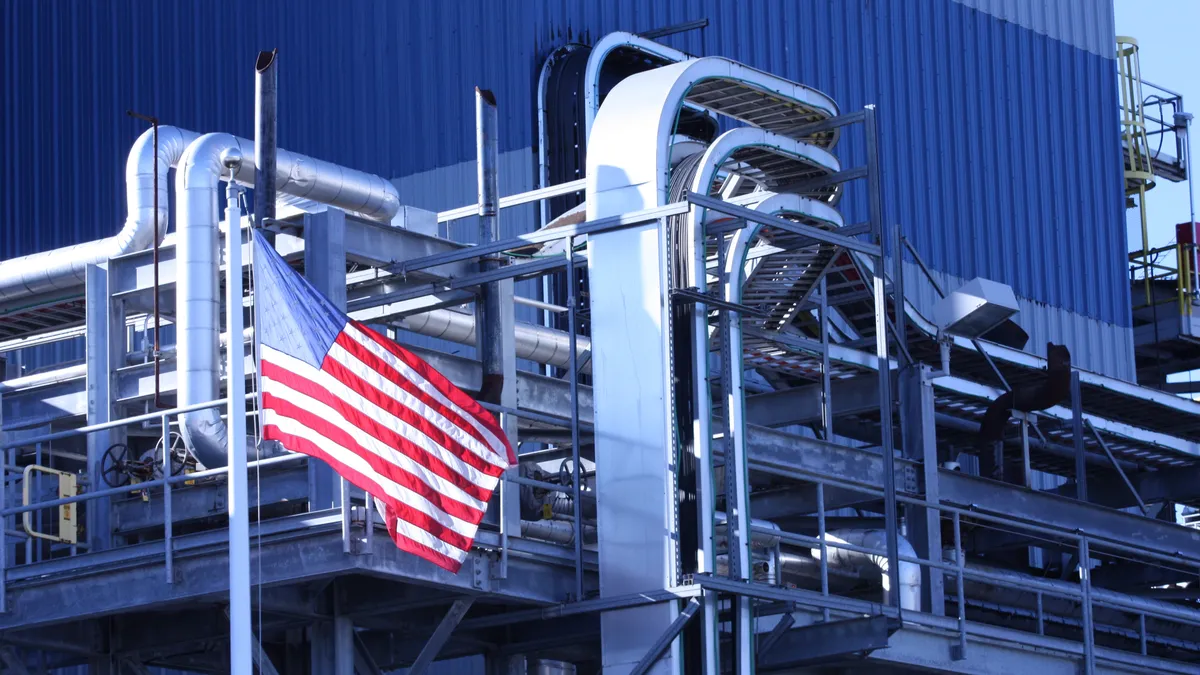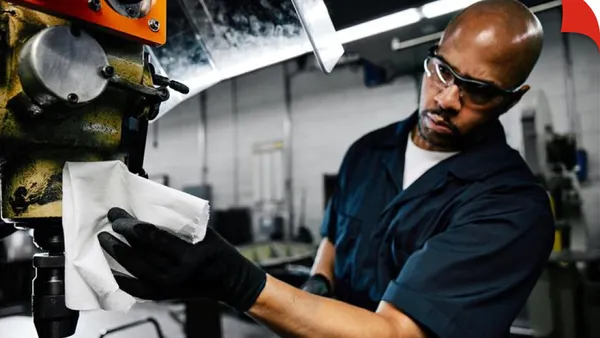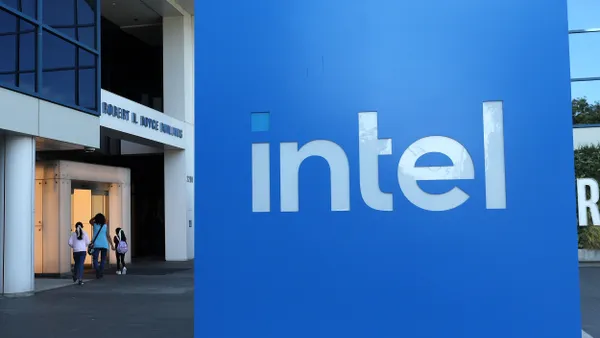Bosch is planning a $130 million expansion at its Lincolnton, North Carolina, facility, to support production of power tool accessories, the company announced June 1.
The Lincolnton location produces accessories for products including saws, drills and routers, according to the release. The 325,000 square-foot build out will take place over the next 24 months, adding space for manufacturing, logistics and warehousing.
“It’s been a very successful site, and the growth dictated that they needed more space,” Tim Wieland, director of corporate communications for Bosch North America, told Manufacturing Dive. “Certainly the fact that the operation was already in North Carolina was a big factor, that they already have the workforce there. And, then also working together with the state on workforce development.”
The expansion will create 400 jobs over the next five years, Bosch said in the release. To support the project, North Carolina has approved a Job Development Investment Grant, and the state’s Department of Commerce will offer skill development opportunities through a network of community colleges.
“We aim to provide local-for-local solutions to support our businesses and the expansion for Power Tools in Lincolnton is further evidence of our commitment to develop local manufacturing here in the region,” President of Bosch in North America Mike Mansuetti said in a statement.
The investment comes as the Bosch Power Tools raked in $6.2 billion in global sales last year, and aims to more than double its sales by 2030, the company said. This includes expanding in North America, which Bosch said makes up over 40 percent of the power tool market worldwide.
However, Bosh has made a slew of investments in its North American operations beyond its power tools portfolio over the past year. Wieland noted the company’s plans to acquire TSI Semiconductors, and the roughly $700 million spent on two South Carolina operations and a new appliance manufacturing center in Mexico.
“North America is a really key growth market, and having manufacturing to support that growth from a local-for-local standpoint is a really critical part of that,” Wieland said.












